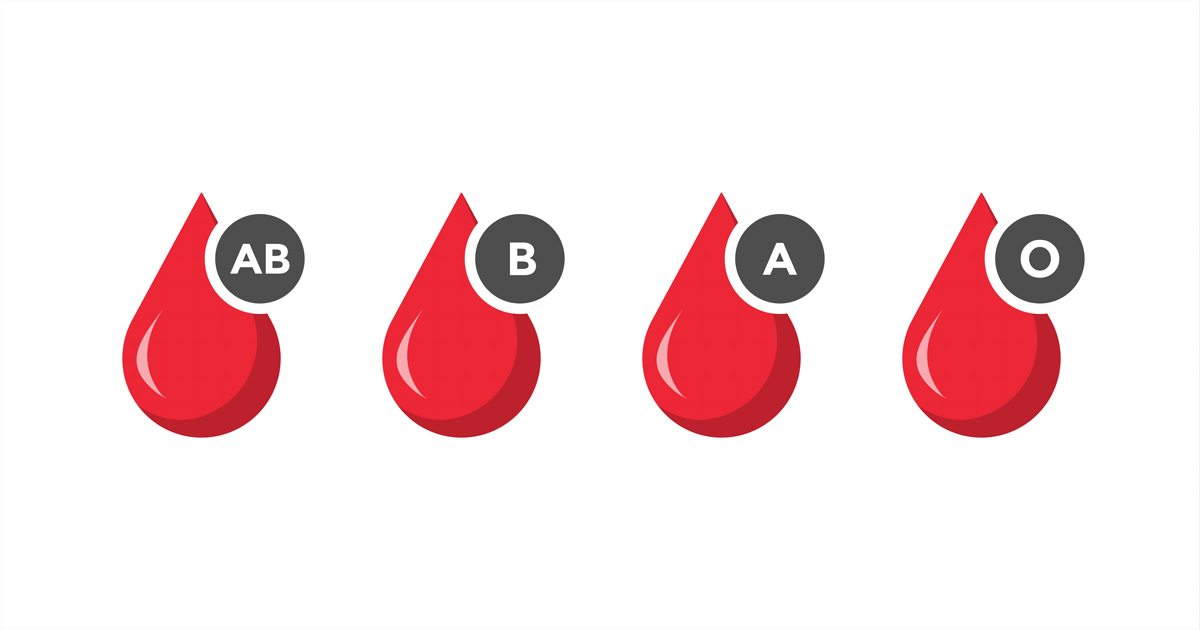Does blood type affect your stroke risk?

When it comes to blood types, there are four major categories within the ABO group: A, B, O and AB. Within these groups are eight more blood types, with type O as the most common and AB negative as the rarest.
Do some of these affect stroke risk more than others? The best answer right now is maybe.
A recent press release brought attention to a research study focusing on whether blood type could be linked to the risk of stroke before age 60. In this study, researchers looked across all chromosomes to identify genetic variants associated with stroke and which blood types may hold a higher risk of early stroke.
While studies like these are important and provide an excellent opportunity to understand more about our risk, sensational internet headlines can cause people to worry prematurely about certain factors outside their control. This is especially true considering we inherit our blood type from our parents.
Blood type and stroke risk
"There are many nuances and variables to consider when interpreting research studies like these," says Marco Gonzalez Castellon, MD, Nebraska Medicine neurologist. "Although this study suggests that having type A blood as a possible risk factor of early stroke, suggesting a small 16% chance of higher risk, the study does have its limitations."
While this study may point us in the right direction to build on for future research, it tends to provide more clues than answers.
Most experts consider age 45 to be the benchmark of early stroke, while this study defines early stroke as before age 60. There are many variables to consider, including existing conditions that may occur between the ages of 45 and 60, lifestyle choices, ethnicity, family history and more.
"This study is an important one, but it comes down to the math, adds Dr. Gonzalez Castellon. "Although big studies like this produce possible connections, it's important to remember that finding an association between two factors is not necessarily the cause of a disease."
In other words, study findings may show a possible correlation but not causation. More research is needed to understand the link between blood type and stroke risk.
Other health factors hold more weight than blood type when considering stroke risk
While blood type may contribute to stroke risk, it's not the biggest concern. The degree of association is much higher with certain health conditions and lifestyle factors.
"When it comes to stroke, by far the biggest risk factor is if you have uncontrolled high blood pressure," says Dr. Gonzales Castellon. "A history of smoking and having uncontrolled diabetes are two other big risk factors. Your blood type will not protect you from the effects of these conditions or lifestyle choices."
Stroke prevention: You can't control your blood type, but you can control other aspects of your health
According to the American Stroke Association, nearly 80% of strokes are preventable. The most effective way to reduce your risk is to make healthy lifestyle changes now.
Practice a healthy lifestyle
- Choose healthy foods and drinks. Avoid saturated fats, trans fat, cholesterol, sugar and high-sodium foods
- Lose weight or maintain a healthy weight
- Move more and sit less. Regular exercise can help keep other health conditions at bay
- Do not smoke or quit smoking. Cigarette smoking damages the heart and blood vessels and raises blood pressure
- Limit alcohol intake. Drinking too much alcohol can raise blood pressure and increase triglyceride levels
- Reduce stress levels. Stress can contribute to unhealthy behaviors like overeating, lack of activity and smoking
- Check cholesterol and blood pressure levels regularly
- Keep up with your regular doctor checkups
Manage chronic conditions with your health care team
- Control diabetes and manage it by following your doctor's recommendations
- Monitor and manage high blood pressure
- Treat heart diseases like coronary artery disease or atrial fibrillation
- Take your medication as directed by your doctor
Get more stroke facts and learn more about the signs and symptoms.
Call 800.922.0000 to book an annual exam with a primary care doctor today.







